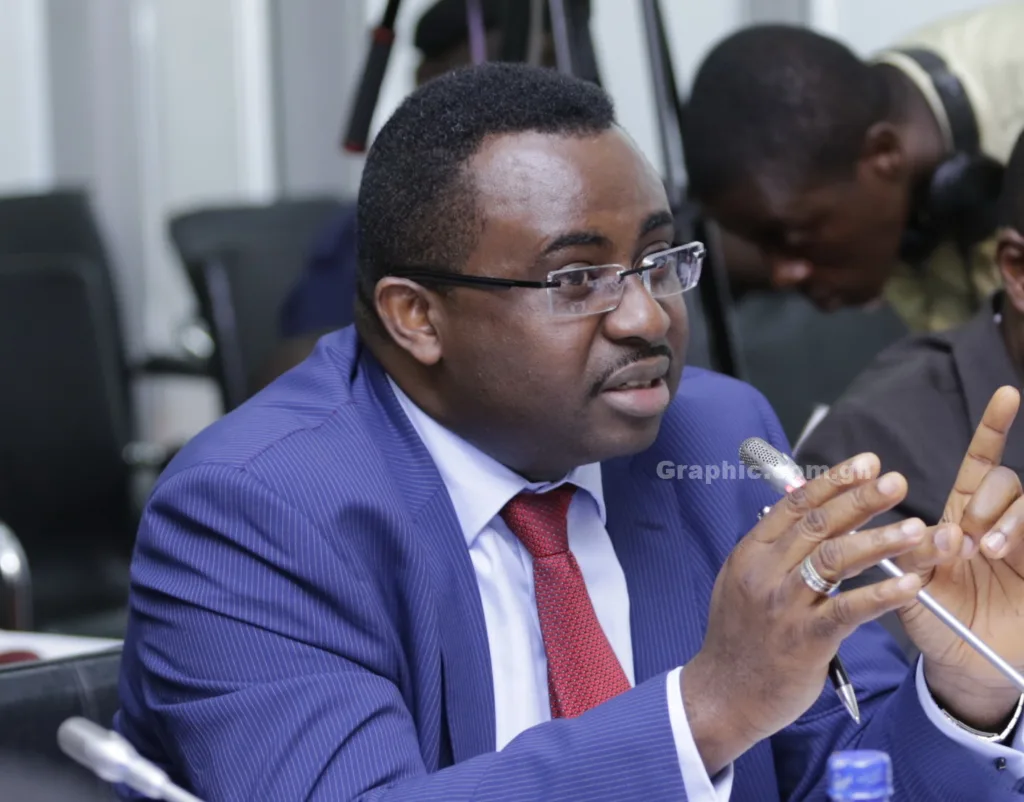BoG Governor Urges Banks to Balance Rate Hikes with Economic Support
Dr. Asiama Calls for Restraint in Passing Interest Costs to Borrowers Amid Tightening Monetary Policy
In his first major policy engagement since taking office, Bank of Ghana (BoG) Governor Dr. Johnson P. Asiama has called on financial institutions to exercise restraint when implementing interest rate increases. His appeal comes at a critical juncture for Ghana’s economy, which is navigating the delicate balance between inflation control and economic growth.
Governor Advocates for Responsible Lending Amid Rate Hikes
Speaking to chief executives of commercial banks following the BoG’s latest Monetary Policy Committee (MPC) meeting, Dr. Asiama emphasized the need for banks to maintain credit support for viable businesses—especially those in vulnerable sectors—despite the challenging monetary environment.
“While we must remain disciplined in our fight against inflation, our banking sector must also ensure that viable businesses aren’t unnecessarily deprived of the oxygen they need to survive,” Dr. Asiama stated during the high-level meeting with bank executives.
The central bank recently increased the policy rate by 100 basis points to 28 percent to accelerate Ghana’s slow-moving disinflation process. This significant adjustment, which directly impacts borrowing costs across the economy, was the focus of Dr. Asiama’s first MPC meeting as Governor.
Signs of Economic Recovery Amid Persistent Challenges
Ghana’s economy is showing promising signs of recovery according to recent central bank data. Private sector credit demonstrated a strong rebound, growing by 26.9 percent year-on-year in February 2025, compared to just 5.1 percent the year before. In real terms, credit growth turned positive at 3.1 percent, following a 14.7 percent contraction during the same period last year.
The banking sector also exhibited resilience with total assets growing by 34.05 percent year-on-year as of February 2025, while deposits increased by 27.89 percent. The Capital Adequacy Ratio (CAR) stood at 14.35 percent—comfortably above the required 10 percent minimum stipulated by banking regulations.
However, Dr. Asiama acknowledged several persistent challenges facing the financial sector:
- Capital Shortfalls: Some state-owned and locally controlled banks continue to face solvency issues due to incomplete recapitalization efforts.
- Non-performing Loans: The gross NPL ratio remains elevated at 22.57 percent, though this drops to 8.93 percent after adjusting for fully provisioned accounts.
- Digital Banking Risks: A recent BoG report noted a 5 percent rise in fraud cases and a 13 percent jump in potential losses.
Balancing Monetary Discipline with Financial Support
The Ghana Reference Rate for April 2025 currently stands at 23.99 percent, reflecting the already tight monetary conditions in the country. While acknowledging the necessity of these measures to combat inflation, Dr. Asiama called for “transparent communication and innovative lending strategies that preserve access to credit while safeguarding asset quality.”
Learning from Recent Financial Reforms
The Governor’s remarks also addressed the broader context of recent reforms in Ghana’s financial sector—most notably the banking sector clean-up and the Domestic Debt Exchange Programme (DDEP). While praising banks for their resilience through these challenging periods, he admitted that aspects of these interventions might have benefited from better planning and stakeholder engagement.
“The lessons from these experiences must inform our approach going forward,” Dr. Asiama noted. “Effective consultation and communication are not just nice-to-haves but essential components of successful policy implementation.”
BoG’s Forward-Looking Supervisory Approach
Looking ahead, the Governor outlined several initiatives to strengthen the banking sector:
Enhanced Supervisory Framework
The BoG is developing a new Resolvability Assessment Framework to enhance crisis preparedness, while supervisors are being trained in emerging areas like artificial intelligence, climate risk, and geopolitical threats.
“Our supervisory approach is evolving from reactive to proactive,” explained Dr. Asiama. “We’re building capacity to identify and address risks before they manifest into systemic problems.”
Governance and Sustainability Focus
The central bank is shifting toward more sustainability-focused evaluations and stronger governance requirements. Dr. Asiama hinted that Basel III and IV training may soon become mandatory for bank board members, signaling higher expectations for risk management expertise at the governance level.
Regional Integration Support
Dr. Asiama encouraged banks to expand support for trade finance and regional economic integration, particularly through the Pan-African Payment and Settlement System (PAPSS), which could streamline cross-border transactions and enhance Ghana’s trade competitiveness under the African Continental Free Trade Area (AfCFTA).
Expert Perspective
“Governor Asiama’s approach reflects a nuanced understanding of Ghana’s economic realities,” notes Dr. Esi Ansah, Professor of Economics at Ashesi University. “The challenge lies in maintaining the delicate balance between inflation control and economic growth—particularly for sectors still recovering from recent shocks.”



